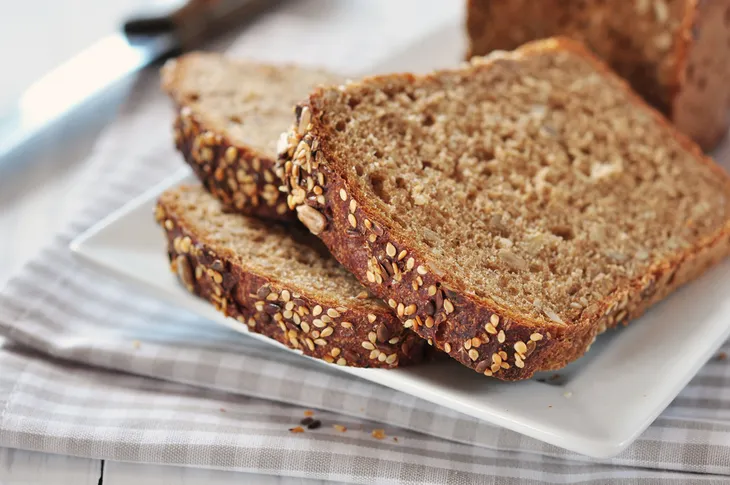When you experience a gout attack, it might feel like you have a horrible condition that you can never escape. But the truth is, gout is quite manageable. Yes, there’s no denying that the pain you feel from gout attacks is extreme. However, there are things you can do to maintain or even improve the quality of your life.
In this article, we’ll explore ways you can manage gout from diet to exercise tips. With these best practices, you can work towards improving your quality of life while living with gout!
Low Purine Foods
Gout is a result of having too much uric acid in your blood. So, you will want to look at the different ways you can reduce your uric acid. The most obvious place to start is your diet. Uric acid is the result of purine breakdown in your body. Some foods have high purine content so you need to monitor your purine intake to make sure you are not having too much.
Thankfully, it’s not that hard to figure out what foods are good for gout. Even if you don’t have this condition, these are some obvious choices to make since they are already healthy. Focus on low purine foods such as whole grains, fruits, vegetables, and low-fat dairy. These are very filling foods that will equip your body with the right nutrients to fight gout.
Vitamin C
Another way to help manage gout is by increasing your vitamin C intake. Good sources of vitamin C include citruses, peppers, broccoli, potatoes, and brussels sprouts.
Vitamin C will not just lower your uric acid it will also improve your overall health. Keep in mind, you don’t need to worry too much about the purine content in fruits and vegetables since their nutrients practically cancel out the negative effects of the purines.
Grains and Dairy
When consuming grains, make sure they’re whole wheat. These contain beneficial wheat germs that fight conditions that have been associated with gout such as obesity, diabetes, and heart disease.
When choosing dairy products, choose the low-fat kind. This is because it has a uric acid lowering effect on the body.
Foods to Avoid When You Have Gout
Now that you know what foods to eat, let’s take a look at the foods you should avoid when you have gout. This includes red meat, organ meat, shellfish, sugary beverages, desserts, and alcohol. These food items are very high in purines and they are known to trigger a gout attack if you indulge in them.
We understand it can be hard to eliminate some of these in your diet so you can start eliminating them gradually. The most important thing is that you are consistent. If you try to make a drastic change in a short amount of time, you might fall into the perfection trap which can lead to bingeing if you make a single mistake.
Manage Your Weight
The next step to managing your gout is to lose any excess weight. Most gout patients, when they are diagnosed with the condition, are often overweight or obese. When you have excess weight, you are also carrying extra uric acid in your body which makes you vulnerable to gout flare.
Speak with a physician to find out what is considered a healthy weight for you. This will be based on your BMI.
Weight Loss Tips
Changing your diet will significantly help with your weight loss. This is because you get rid of most foods that are keeping you overweight such as junk food, meat, sweet drinks, desserts, and beer.
Like your diet, this process should be taken slowly. A drastic weight loss could result in a gout attack, which you don’t want to happen. Aim for about 1 to 2-pounds a week. The great thing about it is that you can lose weight in conjunction with your diet.
Exercises That Help Manage Gout
Another tip for weight loss and managing gout is to exercise regularly. You will eventually get to that ideal weight by following a low purine diet and exercising.
Moving your body seems like the last thing you want to do when you have gout, but it actually has the opposite effect. Once you begin exercising, you’ll feel more flexible, energetic, your muscles will become stronger, and your joints will get stronger too! If you’re not sure where to start, here are some suggestions.
Range of Motion Movements
Range of motion movements will reduce stiffness in your joints allowing you to be more mobile and flexible. Start by doing rotating exercises in areas that are prone to stiffness such as your shoulders, back, head, neck, ankles, and wrists.
Strength Exercises
Strength exercises will involve some weights. To prevent injury, start with a lower weight and work your way up as you build strength.
By doing strength exercises, you work on your muscles helping to take the pressure off your sore joints. This will also strengthen your bones.
Stretching Exercises
Stretching is another great exercise for gout because it improves your flexibility and muscle strength. Some good stretching exercises are yoga and pilates. Move your joints as far as you can. Over time, you’ll become more flexible, making it easy to go about your daily physical activities.
Cardiovascular Exercises
Cardio doesn’t just help you lose weight, it also improves your heart health, increases blood circulation, and boosts your energy.
Thankfully, it’s not that hard to think of activities to get your heart pumping. Some good cardio exercises include walking, running, dancing, cycling, swimming, even climbing the stairs. It’s so easy to do you can practically do cardio workouts anywhere.
Exercising Tips
These exercises are recommended for gout sufferers since they are low impact but still highly effective. Take note however that you should not engage in any strenuous activity if you’ve just experienced a gout attack. This will only make the inflammation worse.
Further, before you do any of these exercises we discussed above, make sure you consult with your doctor. They will look into your condition and its severity and advise on the kinds of movements to avoid in order to prevent your condition from worsening.















